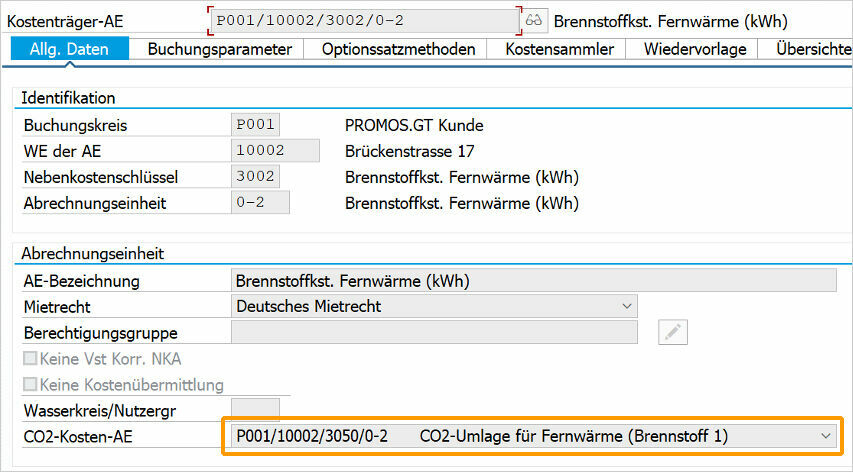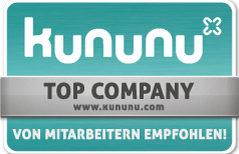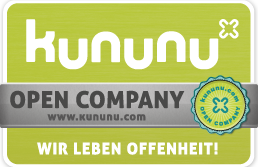D-tape processing in ARGE 3.10 data format – SAP Note & new PROMOS solution
The changes so far:
New legal requirements have come into force making it necessary, among other things, to divide the CO2 emission costs between tenant and landlord, and to include information on the energy mix per fuel type. In order to provide the technical means to do this, bved (the German Federal Association for Energy and Water Data Management; formerly ARGE HeiWaKo) created the new format version 3.10 last summer, which was last updated in March 2024. It is designed to support seamless and consistent data exchange between housing companies and billing service providers. What had so far been missing for the technical implementation in SAP® was the long-awaited SAP Note for the processing of D tapes (settlement results) in the new version. On 28 May 2024, the utilities community breathed a sigh of relief as it was finally released to the public. What this means for PROMOS customers:
Step 1: Sending cost reports to billing service providers
As part of the data exchange, the housing company must report to the billing service provider which tenants are to be billed for which period in which rental properties for which floor space. So-called tenant and property records (M/L records) are created for this and sent to the billing service provider.
The billing service provider also needs the costs incurred within a billing period, meaning the housing company must first post all costs to so-called cost object settlement units (cost object SUs). This is done according to the cost type, e.g. categorised by fuel, maintenance, operating current, service fees, etc.
So what’s new? Moving forward, the billing service provider not only requires the total fuel costs, but also the amount that corresponds to the CO2 emission costs. This is necessary to allow the billing service provider to allocate the CO2 emission costs in accordance with the CO2 Cost Allocation Act, i.e. so that they can calculate the amount for tenants and landlords. This requirement means that the CO2 emission costs must be posted separately in SAP®, which is a prerequisite for the end-to-end digital reporting to the billing service provider.
To allow this, the PROMOS solution will provide a new service charge key for the CO2 emission costs that are to be divided. Jörg Stibbe, Senior Expert in the area of Consulting Real Estate Management, explains, “Right now, the data does not necessarily have to be sent to the billing service providers digitally. The providers have portals that can be used to enter the data manually. However, the fuel costs and CO2 emission costs must be posted separately in SAP® beforehand. The long-term goal is to completely digitalise the billing process, which will involve all parties – from energy suppliers and billing service providers to tenants.”
If the new cost object SUs have been created using the new service charge key for CO2, they must be assigned to the corresponding cost object SU depending on the fuel type. This can be selected from a drop-down list (new PROMOS software programming):

For fuels, PROMOS now also compiles the energy sources that were used to produce the fuel (e.g. energy mix for district heating) via a separate “CO2 data” tab for the cost unit SU. Different “products” can be defined for each vendor, and the energy sources used are then assigned to the various products. For example, the fuel type “district heating” could be made up of the energy sources “gas” and “renewable energies”. The sum of the different sources in the energy mix must total 100%. Currently, the breakdown is clearly displayed in the form of a table on the CO2 data tab; however, a graphical presentation will also be added in SAP® Fiori in the future.
Step 2: Allocating CO2 emission costs
Once the incurred CO2 emission costs have been sent to the billing service provider, they divide the CO2 emission costs between the tenant and the landlord. To aid with this, the legislative body created a 10-stage model that categorises rental properties according to the tenants' consumption values and other parameters. This is used to allocate the costs as percentages. After the billing service provider has reported back to the housing company with the cost allocation, the non-apportionable CO2 emission costs must be transferred from the cost object SU for CO2 emission costs to a billing unit for non-apportionable CO2 emission costs. To support this manual posting procedure, PROMOS has added a new step in the billing process called “Transfer post CO2 costs”, in the Utilities Cockpit (NKPU), which includes a direct jump to the “Transfer posting SU to SU” transaction.
Step 3: Importing settlement results from external meter reading companies
To be able to import the settlement results from meter reading companies, the SAP® system must be able to process D records in the new ARGE 3.10 format. The new D records are no longer single-line, but multi-line. This means it is now possible to process not only the settlement results for heating and hot water, but also the results for cold water (previously W records), for example. To differentiate between the results, different cost types are used that are provided in the record description for ARGE version 3.10, e.g. 231 – “Heating/hot water costs”. Data fields for apportionable and non-apportionable CO2 emission costs have also been added. PROMOS has updated its NKPU for the manual recording of external settlement results as follows:

Since it is now possible that the D record can contain several lines with different cost types for, for example, heating/hot water, the previous view has been updated to a detail view:

The solution not only supports ARGE versions 3.08 and 3.10, but also the previous ARGE version 2.1. Once the data has been entered in the PROMOS tables, it is mapped to the relevant D record format in the settlement run and can be displayed in the D-tape log:

Stibbe adds, “This part of the innovations is relevant for all our customers. It is something that has to be implemented. Now that the SAP Note has finally been released, we are pleased to be able to provide our customers with a suitable solution that processes the new D record.”
Summary
Stibbe provides a fitting comparison to help customers better understand the complex innovations and billing requirements for the current period: “It is a bit like learning to dance. There are some compulsory steps to learn, but once you have done that, you have free reign. You can still use the portals provided by the billing service providers to manually send the data, like before. The allocation of apportionable and non-apportionable CO2 emission costs for accounting and the technical processing of D records with ARGE 3.10, on the other hand, are the compulsory steps. Alongside all the compulsory tasks and any other extra tasks the utilities manager has to deal with, we should not lose sight of our main goal: to completely digitalise the settlement process. This is what I am advocating and, if we are successful, this will be our future.”
Further information:
- PROMOS News "ARGE HeiWaKo is now called bved – what else is in store for you?"
- PROMOS News "Necessary adjustments to the SAP® utility cost statements for the 2023 billing year – the path to digitalising data exchange with billing service providers"
- PROMOS News "No more difficult manual work – PROMOS digitalises steps for CO2 emission cost allocation"
- PROMOS Utilities Cockpit Portfolio
- PROMOS Portfolio for Utility Cost Management

